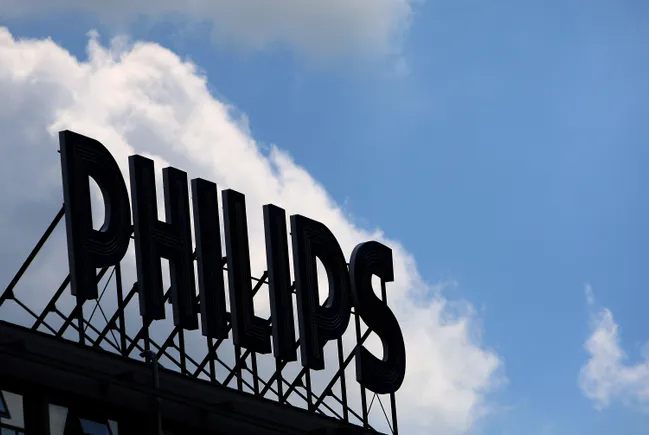By the numbers
Q2 Revenue: 4.46 billion euros
Flat year over year
Q2 Net income: 452 million euros
Compared to 74 million euros in Q2 2023
Philips’ sales remained flat as it grappled with China’s anti-corruption measures in the second quarter, the company said Monday.
Sales and orders in China fell in the quarter. Philips CEO Roy Jakobs told investors on the earnings call that anti-corruption measures affected lead times as hospitals increased their internal approval cycles to ensure compliance with the requirements. Philips does not expect the measures to impact “structural demand” in China, Jakobs said.
Philips expects “China to gradually contribute to order growth in the coming quarters, albeit from a low base,” Jakobs said, however, the exact timing of the recovery “is hard to gauge.” There was sequential improvement in the second quarter, and Philips continues to expect the recovery to accelerate in the second half of 2024.
Jakobs said “the recently announced government program for renewal of aged medical equipment” will support the return to growth in China. The stimulus package will provide money that could speed up the replacement of devices. The government has yet to confirm how much money it will provide or discuss the exact timing, making it too early to quantify the impact on Philips, Jakobs said.
The CEO talked down the likelihood that Chinese customers will delay orders because they are waiting for stimulus money. Instead, Jakobs identified the underlying need for replacement devices and some pent-up demand from when order times were under pressure as the most important drivers of recovery. Management pushed back when an analyst asked if Philips had lost ultrasound market share in China.
“Let me clarify on ultrasound,” Philips CFO Abhijit Bhattacharya said. “We had tremendous growth last year in the first half of the year. It was above 30% growth. Based on that, we don’t have growth in the first half of this year because we were getting out of the whole supply chain situation. I don’t know where you have this information on market share loss.”
North America offsets China challenges
Philips’ comparable order intake increased 9% despite the problems in China, driven by improvements in North America. While Philips expects China to improve in the second half of the year, Bhattacharya told analysts not to extrapolate from the 9% figure because “order intake has been extremely lumpy.” Order growth over the first half of the year was 3%.
“I think the strength in North America will continue. The strength in international markets will continue. And then the only unknown piece in the puzzle is how China recovers. That’s how you should look at the order intake for the second half,” the CFO said.
Bhattacharya’s belief that North American strength will continue is built on trends that could favor Philips. Jakobs said healthcare consolidation could benefit Philips because customers are “choosing key partners that they trust in for longer-term technology partnerships.”
European class action case
Philips shared an update on the fallout from its respiratory device recall and changes it has implemented to improve its organization. There was no news on the Department of Justice case in the U.S. In Europe, a class action case has been announced, but Philips has “very limited” information and has yet to be served with the complaint, Jakobs said.
Philips has eliminated almost 9,000 jobs as part of an attempt to simplify its operating model and is on track to hit 10,000 by 2025. The company said it realized savings of 195 million euros ($211 million) in the second quarter. Philips is also on track to achieve a 65% reduction in its quality management systems this year, Jakobs said.

